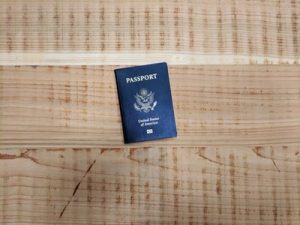An overview of customs regulations and rules in Brazil
When you’re moving to Brazil from the US or Canada, you’ll notice that customs regulations and rules in Brazil are quite different. Your moving company or your attorney will definitely warn you about this. However, all is not lost. You see, once you get used to it, you will find out that Brazil isn’t a dictatorship – like the US, it’s a free country, where personal liberties are respected. Without further ado, let’s find out how customs regulations and rules in Brazil are different from those of Anglo-American countries.
There’s a lot of bureaucracy
This doesn’t look too hopeful to you, but that’s the general overview of how things work in Brazil. You see, the US has federal and state laws, and that’s fine. It’s a huge country. Brazil is also an enormous country, with a rapidly growing population. It is, however, divided into regions, not states. Regions do not have the power to pass their own laws within the federal framework. In Brazil, it’s much more centralized. The central governmental body (the Assembly) passes all the customs regulations and rules in Brazil. Compared to the US, Brazil is much more centralized. As a result, federal bureaucracy oversees every level of trade between Brazil and other countries.
As a result of this, customs regulations and rules in Brazil are much more uniform
In the US, state laws differ on many important issues. For example, legal drinking age, driving age, firearms carry. In one US state, having a loaded pistol in your front seat is absolutely fine. However, in other states, it will earn you jail time. In Brazil, it’s forbidden all the time, and Brazil is uniform in such matters. Customs regulations and rules in Brazil apply everywhere equally.

Customs regulations and rules are much more expansive in Brazil than they are in the US.
When it comes to moving your company to Brazil, it’s best to find a Brazilian partner company
You see, Brazilians favor a “buy Brazil” policy. This means that foreign products are often faced with taxes which are sometimes high and unpredictable. For this reason, many US companies, such as Ford, or the German auto-titan Volkswagen have moved their factories to Brazil. They have also signed partnerships with Brazilian companies or simply overtaken them. The key is to get past the high border import tariffs – it’s much easier to see Brazil as a semi-closed economic system. If you wish to import stuff into Brazil for manufacturing, keep in mind that customs regulations and rules in Brazil might bar you from simply exporting – it might just be better to lower the costs by starting anew in Brazil.
If you want to import a vehicle, customs regulations and rules in Brazil can be exceedingly tough
First of all, if you want to import a vehicle, you will have to make sure it satisfies the norms. The most important ones are, obviously, carbon (CO2) emissions. You cannot import a vehicle into Brazil if you have a vehicle that doesn’t comply to the Brazilian emission standard that roughly corresponds to Euro 5. This means that you’ll either have to get a catalytic converter, or a DPF (diesel particle filter). Of course, it’s much more simple to have a newer car, considering that Euro 5 corresponds to cars made roughly between 2008-2012.

When moving or importing to Brazil, it’s very important to have the paperwork in order.
It’s important to have your documentation in order
The problem with Brazilian customs authorities is the fact that everything has to be in perfect order, otherwise, the authorities may seize the shipment or impose a hefty fine. Brazilian authorities regularly seize shipments with incomplete, inaccurate or, God forbid, contradicting documentation. These authorities also have the right to apply fees and fines at their discretion. Brazil’s recent orientation towards sustainable development demands some restrictions, which we will come to later…
Of course, Brazilian customs regulations and rules forbid imports of certain products
The Brazilian Government has eliminated most import prohibitions with several important exceptions. In general, all used consumer goods are under prohibition from being imported. Used capital goods are permitted only when there is no similar item produced in the local areas. Aviation parts, for example, are one of the few used products allowed to enter Brazil. Remanufactured goods are still considered used goods, which means that they cannot pass border control. What’s more, as we mentioned, Brazil’s development strategy forbids the import of cattle meat which has administered growth hormones. The list of items that Brazilian authorities deem damaging to health, safety or the environment is ever-changing, so you’ll have to follow it through.
Some things, however, are allowed under special conditions

The truth is, whenever you move across the counties, you have to mind the rules – Brazil is simply no exception.
For example, if you wish to import an animal, you’ll have to convince the local authorities that said animal does not present a danger to the local ecosystem. For example, if you want to import a household cat or a dog, that’s not a problem. However, if you wish to import a cheetah, a tarantula or a crocodile, you may meet some resistance. You may not import firearms at all, or anything resembling an explosive device. Also, lottery and gambling tickets are strictly a no-no. You’ll have to get a special clearance for some items, such as:
- Agricultural products;
- Biological reagents – you’ll have to prove they’re not toxic and that you need them for some other purpose (for example, paint);
- Artwork;
- Antiques.
If you have any doubt, you should contact an attorney, or your packing services Brazil. It’s their job, after all.
However, there’s a way around the rules when it comes to product import
You can, for example, apply to register your product in Brazil. This process can sometimes last for more than a year. However, there’s a loophole. If you wait for longer than three months – still a long period – you can import it, however, you assume responsibility for any liabilities as a result of safety laxity. In other words, it’s a bit of a raw deal, but it’s still possible to import it in time to beat the competition. This is just one way to avoid customs issues in Brazil. Is it tough? Unfortunately yes. But, is it possible? Absolutely. The most important thing is, again, to have the paperwork in order.








